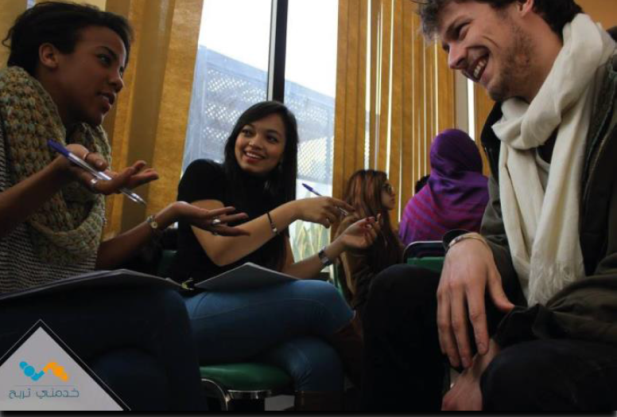Context:
Tunisia has a population of 11.107 million and GDP US$43.015 billion. Youth constitute 12.3% of the total population and 17.5% of the working-age population. While unemployment rate is 14.8%, unemployment among female youth (21.2%) is higher than that among male youth (12.5%). One substantial obstacle for finding a good job is the mismatch between requirements of the job and qualifications of applicants. The average educational attainment in Tunisia is 8.4 school years. Only 10% of Tunisian youth had volunteered in an organization in 2015.
The idea of “Khadamni Terbah” resulted from the workshop “Youth employability”, after noting the high unemployment rate of young graduates (600,000 Tunisian youth according to data from the Ministry of Vocational Training and Employment). The idea of the project was the fruit of the reflection of 7 associations on the role of the civil society in youth employment, it was inspired by the lives of young Tunisians after the revolution, and it revolved around creating a network of associations who would help young people find a job in a new and an entertaining way.
Implementation of programme/ initiative:
The project, funded by the French Institute of Tunisia, is implemented by the Tunisian Association for cultural and artistic development – Cité’Ness, in collaboration with the Social and Economic Solidarity Lab (Lab’ESS). The aim of this pilot project was to provide personalized support for unemployed youth who are actively looking for work to ensure successful economic integration. More specifically, the project aimed at:
- Reaching out youth in their localities to introduce them to the good methods of research/creation of employment.
- Attracting the attention of youth in coffee houses, popular spaces, and universities, and directing them to employment initiatives or support centres for young entrepreneurs.
- Boosting the know-how of the network of associations in terms of providing advice and guidance for young people.
Main challenges:
The economic integration of young people, an important factor of sustainable development, presents a concern and a challenge not only for the state, but also for actors in the civil society. Identified challenges among youth included:
- Lack of confidence
- Unfamiliarity with good practices and opportunities in the professional world
- Lack of knowledge on how to develop themselves
- Gaps between skills and competencies required
Results achieved:
The project involved 14 associations spread over 7 governorates where they trained and advised youth on career choices as well as provided them with training courses. A total of 178 young Tunisians (43% females) benefited from guidance in career choice and training on professional orientation, and were oriented to employment centres/platforms for additional guidance. Youth who expressed the desire to found start-up projects were directed to networks of entrepreneurs, such as the COPR initiative and INJAZ. Thirty-Nine youth (20%) were able to find jobs, and twenty-eight (10%) have become economically independent as a result of the project.
Moving Forward:
The network of associations will continue to provide guidance and career advice for youth.
Replicability:
Khadamni Terbah was replicated in seven governorates in Tunisia.
References:
AHDR 2016
Women’s school-to-work transition in the Arab Mediterranean countries, 2017
OECD Youth in the MENA region, 2016
World Bank, 2016
International Labor Organization, 2016
Report of the national workshop on enhancing youth participation in public issues and decision making in Tunisia
Project Details
Date: October 12, 2017
